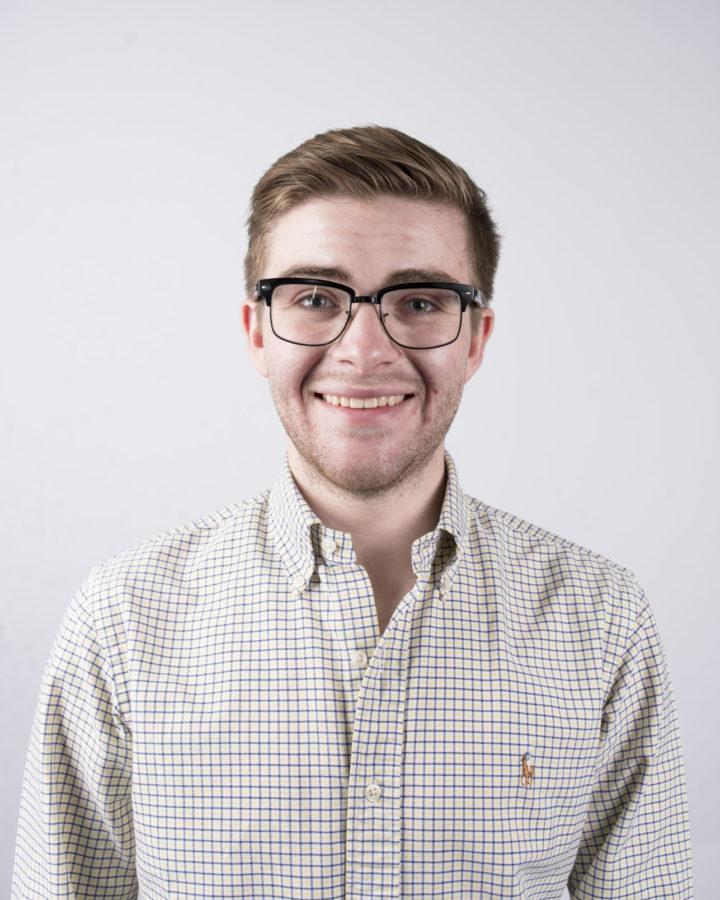Don’t be afraid to burst your own bubble
March 31, 2015
Picture in your mind 1950s Smalltown, USA; white picket fences, the shops lining Main Street, the creepily photogenic nuclear family with two perfect kids and two sedans in the driveway; one for Mom, one for Dad. Take that image, strap it into a time machine and send it to 2015. That’s pretty much my hometown in a nutshell.
Where I’m from is solidly middle to upper-middle class, around a $60,000 median income, and more than 80 percent white. I wouldn’t be surprised if some people in my town actually did think that “diversity” was an old, wooden ship (and that’s how you nail an Anchorman reference).
It doesn’t take a genius to see that I grew up in a pretty sheltered environment, but it’s there that I developed my notion of what reality is, or my personal bubble. We all have a bubble we live in, created by where we grow up, our friends, where we get our news, our families, our education and countless other factors. These things all play a role in how we interpret the world around us. But no matter how true we believe our perspectives to be, no matter how indisputable they may seem, our perspectives and our bubbles will always be incomplete because there are millions of experiences we inevitably miss out on.
While we live inside of our bubbles, whether we know it or not, sometimes, we’re suffocated by them. While our bubbles encompass our humor, values and much of who we are, when we apply what is true within our personal bubbles to everyone else, serious problems begin to emerge.
It’s not hard to find an example of a person who believes their version of reality – their bubble – is universally true. For example, there are many people, who, likely because of their upbringing, denies that “white privilege” exists. In defense of their belief, they’ll probably say something along the lines of “well I would never discriminate” or “I had to work for my success, so if you’re not successful you’re just lazy,” and provide some anecdotal evidence to back up their claim.
Get The Daily Illini in your inbox!
And many of these examples are the result of people never having to deal with these issues themselves. When you don’t take the time to actually consider a perspective or experience different from your own, anecdotal evidence is probably going to be the only support you’ll find, or the only thing that forms your own opinion.
This extends to large-scale issues as well. During the height of the protests in Ferguson, I was stunned to see just how many people viewed the demonstrators exclusively as troublemakers or criminals whose anger toward law enforcement was baseless. There was even tension at one family get-together last fall because my statements to the contrary “offended” some of my relatives.
The Ferguson Police Department had been targeting African-Americans in the town for years, slapping them with trumped-up charges and trapping many residents in a cycle of fine-related debt. The community’s distrust of local law enforcement existed for a legitimate reason, and had been building for years before the death of Michael Brown.
So it didn’t make sense to me why people were so quick to dismiss the protesters when they first hit the streets. But I think they were stuck inside their bubbles and personal perspectives. They saw the events unfolding in Ferguson and incorporated them into what was already true for them; police are always the good guys, anyone against them are always the bad guys.
Even though the world we live in is incredibly complex, nuance is tough to come by in our personal bubbles. These limiting views are only hindering the way we perceive the world and the way we interact with people from different walks of life as us.
If you’re a student, you may think that just attending the University will broaden your horizons and make you more empathetic to people from different backgrounds. However, with tuition rates continuing to rise across the country, a degree from a four-year university is becoming less accessible to low-income, minority and out-of-state students. As universities become increasingly exclusive, it’s easy to forget that thousands of people who are just as bright did not have the same or as many opportunities as us.
We’re trapped in our bubbles when we fail to recognize the limitations of our perspectives. When we reject empathy, we make conflict more likely. Every day, challenge your preconceptions on any given issue. Push yourself to burst your own bubble, and recognize that there is no such thing as a black-and-white issue. The only accurate generalization that can be made is that generalizations are always inaccurate.
Josh is a junior in LAS.







